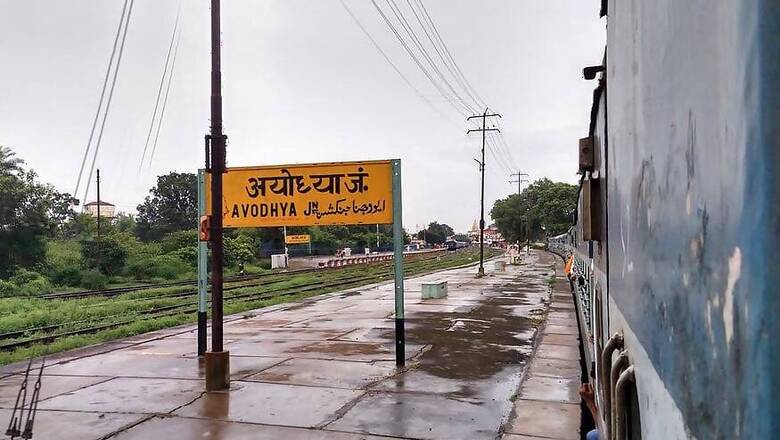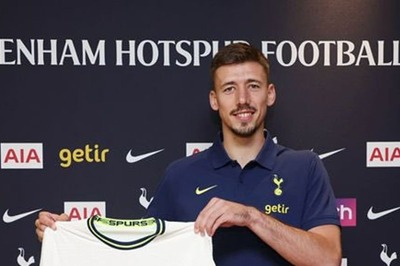'Accept Verdict in All Humility': Modi to Council of Ministers Ahead of SC Ruling on Ayodhya Dispute

views
New Delhi: Prime Minister Narendra Modi on Wednesday asked all his Cabinet colleagues to help maintain calm during and after the highly-anticipated Supreme Court verdict in the Ram Janmabhoomi-Babri Masjid land dispute case, said sources.
“Accept the verdict in all humility,” Modi is learnt to have advised his council of ministers, asking them to refrain from making unnecessary statements on the issue and maintain an atmosphere of amity and harmony.
He also emphasised that the verdict should not be seen through the prism of victory and defeat, added the sources.
Chief Justice of India Ranjan Gogoi is expected to deliver the verdict in the case before his retirement on November 17.
In the latest edition of his "Mann ki Baat" radio programme on October 27, Modi had recalled how the government, political parties and civil society prevented attempts to create fissures when the Allahabad High Court ruling on the disputed land in Ayodhya was to be delivered in 2010. He had described it as an example of how a united voice could strengthen the country.
Modi's remarks came days after the ruling Bharatiya Janata Party (BJP) asked its workers and spokespersons to refrain from making emotive and provocative statements on the Ram temple issue. The party also told its MPs to visit their constituencies for maintaining calm.
The ruling party's ideological mentor, the Rashtriya Swayamsevak Sangh (RSS), issued a similar word of caution to its cadre a few days ago. The top brass of the Sangh, at its recent meeting of "pracharaks", had asked them not to celebrate or carry out processions if the Ram temple verdict was in their favour.
The RSS and BJP leaders have been making efforts to reach out to the Muslim community and send out a message of peace and harmony.
Union Minister of Minority Affairs Mukhtar Abbas Naqvi on Tuesday held a meeting with members of various sects, educationists and socio-political leaders from the Muslim community to urge for social harmony and brotherhood after the court ruling.
Prominent Muslim body Jamiat Ulama-i-Hind on Wednesday said the court's verdict will be acceptable to it, appealing to Muslims to respect it.
Section 144 of the CrPC, which prohibits the assembly of four or more persons, is already in place across Ayodhya district till December 10.
Ahead of the verdict, the Faizabad police has deployed 16,000 volunteers to keep an eye against objectionable content on social media, an official said. A similar number of volunteers have been put in place across 1,600 localities in the district to maintain calm when the order is delivered.
On Saturday, District Magistrate Anuj Kumar Jha had issued orders against the use of social media to "insult" deities or to install idols and hold processions related to Ram Janmabhoomi. He also extended prohibitory orders till December 28, mentioning apprehension of breach of peace ahead of the verdict.
Fourteen appeals have been filed in the Supreme Court against the 2010 Allahabad High Court judgment, delivered in four civil suits, that the 2.77-acre land in Ayodhya be partitioned equally among the three parties — the Sunni Waqf Board, the Nirmohi Akhara, and Ram Lalla.
Initially, as many as five lawsuits were filed in the lower court. The first was filed by Gopal Singh Visharad, a devotee of 'Ram Lalla', in 1950 to seek enforcement of the right to worship of Hindus at the disputed site.
In the same year, the Paramahansa Ramachandra Das had also filed the lawsuit for continuation of worship and keeping the idols under the central dome of the now-demolished disputed structure. The plea was later withdrawn.
Later, the Nirmohi Akahara also moved the trial court in 1959 seeking management and 'shebaiti' (devotee) rights over the 2.77 acre disputed land. Then came the lawsuit of the Uttar Pradesh Sunni Central Wakf Board which moved the court in 1961, claiming title right over the disputed property.
The deity, 'Ram Lalla Virajman' through next friend and former Allahabad High Court judge Deoki Nandan Agrawal, and the Janambhoomi (the birthplace) moved the lawsuit in 1989, seeking title right over the entire disputed property on the key ground that the land itself has the character of the deity and of a 'Juristic entity'.
Later, all the lawsuits were transferred to the Allahabad High Court for adjudication following the demolition of the disputed Ram Janambhoomi-Babri masjid structure on December 6, 1992, sparking communal riots in the country.




















Comments
0 comment